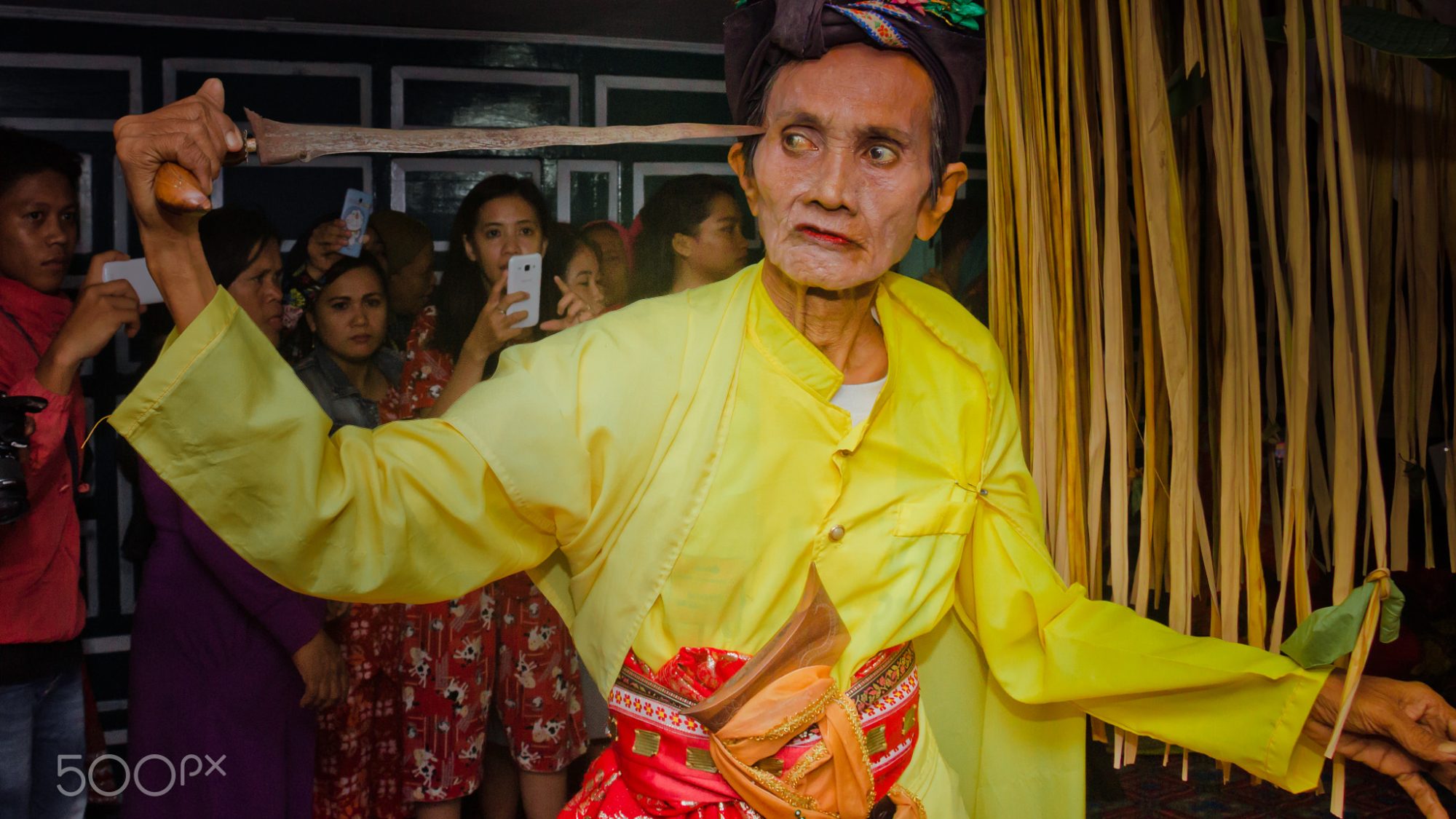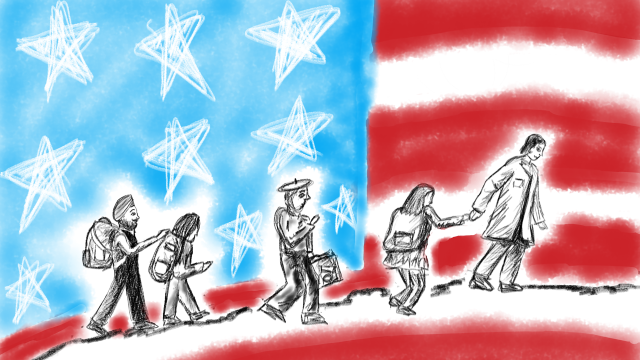
Title: Questioning Intent: The Indonesian Government Is Not Committed to Eliminating Sexual Violence
By removing the word “elimination” from Indonesia’s proposed sexual violence bill, the nation no longer seeks to stop sexual violence, but merely punish it. While there have been small gender and sexual diversity triumphs in Indonesia over the past few decades, concrete action is limited. With Indonesia’s proposed Sexual Violence Criminal Act bill (RUU PKS) no longer seeking to prevent sexual violence, the nation’s commitment to its citizens must be questioned.
Indonesia’s bill to eliminate sexual violence continues to languish. The Elimination of Sexual Violence bill (RUU PKS) was first proposed in 2016, and while numerous revisions have been mooted—most recently in 2021—there is still no sense of when it might be passed.
In its current form, the bill has had a reduction from nine to four forms of sexual violence, which signifies a failure of the Indonesian government and its courts to take an effective, ethical stance on sexual violence against its own citizens, particularly against women and members of the LGBTQI+ community. Among the five eliminated forms of sexual violence were forced marriage, forced abortion, forced prostitution, sexual slavery, and sexual torture. Moreover, the bill was renamed the Sexual Violence Criminal Act bill, starkly suggesting that the “elimination” of sexual violence was no longer important. Now into his second term, President Joko Widodo must drive immediate action as the pandemic has only heightened the rates of sexual and domestic violence.
When Indonesia embraced democracy in 1998 after the forced resignation of authoritarian leader President Suharto, there was much hope for gender and sexual equity. A number of important changes came into effect around this time, such as establishing a commission of women’s affairs. The early years of Indonesia’s democratic period were a time when the nation was building a solid foundation for all of its citizens. Indeed, Indonesia built this foundation on top of a history that was often surprisingly supportive of gender and sexual plurality.
A Rich History of Gender and Sexual Diversity
To be sure, like every other place, Indonesia has a complex past in relation to gender and sexual diversity, but there is evidence of communities being supportive at times. One example that has garnered worldwide attention (including through Robert Wilson’s stage play entitled La Galigo) comes from South Sulawesi. There is written evidence from missionaries traveling to South Sulawesi in the 1500s telling of androgynous bissu spiritual leaders who gained their powers from combining female/male/masculine/feminine elements. Bissu are a community of spiritual leaders who have long played a role in South Sulawesi, including in facilitating royal marriages. Far from being a so-called Western import, support and inclusion of such gender and sexual diversity thus pre-existed large-scale Western influence. Indeed, it was European missionaries who were berating South Sulawesi power holders for honoring gender and sexually diverse bissu leaders.
The West to Blame
Despite this history, though, dominant contemporary debates in Indonesia position gender and sexual diversity as largely unwanted foreign imports. It is this positioning of any expression of gender or sexuality outside the cis-heteronormative standards that is halting the passing of the Elimination of Sexual Violence Bill. People, such as conservative religious leaders and some politicians, against this bill say that if it is passed, there will be little to stop people in Indonesia from having sex with whomever they fancy. This logical fallacy is also reflected in the implementation of a comprehensive sexuality education which includes the elements of consent and SOGIESC (Sexual Orientation, Gender Identity, Expression, Sex Characteristics). For instance, there were false perceptions that if we teach consent to our children, it would mean encouraging young people to have sex, while teaching SOGIESC means converting people’s sexual orientation and gender identity. Such an outdated mindset contradicts the fact that comprehensive sexuality education actually protects children from sexual violence.
High Rates of Gender-based Violence
While key findings from the 2016 Violence Against Women (VAW) Survey in Indonesia revealed that around one in three women aged fifteen to sixty-four years old had experienced some form of violence in their lifetime, the succession of the bill remains halted. Although the official national data surrounding violence against the LGBTQI+ population is lacking, a Human Rights Watch report noted alarming rates of violence within the domains of sexual orientation and gender identity, ranging from systematic police raids to being stripped naked, raped, and burned alive.
While the situation is grim, there are some stories of hope. For instance, the BBC recently ran a story featuring Amar Alfikar, an Indonesian trans man and religious leader. Alfikar’s story is inspiring on many levels, particularly because he showcases how Islam, often glossed as inherently opposed to gender and sexual diversity, is accommodating of such diversity. Indeed, when Portuguese missionaries came to South Sulawesi in the sixteenth century intending to convert residents to Christianity, bissu advised the nobility to accept instead the offer of conversion from Muslim emissaries who were there at the same time. Bissu said that in Islam, they could see a place for themselves that they could not see in the form of Christianity being presented. Other reasons, of course, played a role in communities in South Sulawesi converting to Islam and not Christianity. Still, it is noteworthy that the Portuguese named bissu as a key impediment to their mission.
Strengthening religious and political conservativism, which is based on powerful sexist, homophobic, and transphobic ideology makes it hard to get Indonesia’s Sexual Violence Criminalisation bill passed. In many ways, it is heartening to see pockets of diversity withstanding the pressures of the pandemic. COVID-19 has had detrimental and deadly impacts on women and the LGBTQI+ community in Indonesia. Access to routine sexual and reproductive care, including hormonal contraception, ARV treatment, condom, and outreach programs to vulnerable populations, is significantly reduced as resources are now diverted to COVID-19 responses. When people present themselves at health facilities for COVID-19 treatment or vaccination, many come with a real dilemma of disclosing an underlying health condition, such as HIV, due to the fear of being historically turned away for their unique health status. Transgender women, being the most visible target of violence, have limited access to healthcare due to blatant discrimination and lack of access to legal documentation, as some were forced to leave home at a young age.
The Shortcomings of the Bill
Originally proposed on January 26, 2016, the Elimination of Sexual Violence Bill (Rancangan Undang-Undang Penghapusan Kekerasan Seksual), usually abbreviated as RUU PKS, was proposed to help protect Indonesian citizens from sexual violence. RUU PKS also initially had the aim of preventing sexual violence and providing more rights to survivors, including survivors of marital rape. The National Commission on Violence against Women and the Service Provider Forum were the original proposers of RUU PKS. But since 2016 it has languished in the courts. In 2020, the People’s Representative Council halted discussion of it citing “difficulties.”
The August 2021 version has several differences from the original bill. For instance, now only five forms of sexual violence are acknowledged, not nine as in the original. These five forms are: Sexual Harassment (Article 2), Forced Use of Contraceptive Devices (Article 3), Forced Sexual Relations (Article 4), Sexual Exploitation (Article 5), and Criminal acts of sexual violence involving accompanied by other criminal acts (Article 6). It is a tragedy that the focus is now purely on the prosecution of criminal acts and not, at any level, at eradicating sexual violence in the first place.
There are a few shortcomings of the bill. For instance, the revised bill offers very little in terms of protection for survivors of sexual violence. Law enforcement officers can do very little to support victims, and this just perpetuates the terrible position victims are put in. The revised bill also provides little to ministries or institutions to support survivors. Governments are not mandated to support victims and there are no regulations forcing them to support victims. Furthermore, the revised bill does not obligate services like the Integrated Service Center to support victims. The role of support services like paralegals to help victims was removed. The revised bill does not support the particular interests and needs of victims with disabilities. As such, there is no support for sign interpreters or psychological assistance. Lastly, the revised bill does not regulate online-based gender violence.
Nevertheless, it is imperative that Indonesia’s government must disregard dissenting voices and recognize the urgency of passing this bill, albeit in its watered-down version it offers little protection from sexual violence. Its passing will become the first step in ensuring the safety of its citizens within their own country.
. . .
Sharyn Davies is Director of the Herb Feith Indonesian Engagement Centre at Monash University and has long supported gender and sexuality equality in the archipelago.
Alegra Wolter is a medical doctor and transgender activist from Indonesia who serves as Suara Kita’s Advisory Board Chair. Her community work focuses on multiple health campaigns within the spectrum of gender and sexual diversity.
Dédé Oetomo is a Trustee with the LGBTI+ organization GAYa NUSANTARA Foundation and an Adjunct Lecturer in gender and sexuality at Universitas Airlangga.
Image Credit: Wikimedia Commons; Creative Commons Attribution-Share Alike 3.0 Unported
Recommended Articles

Currently, in a US election year, immigration has once again become a hot-button political issue. Candidates must contend with political claims that immigrants are taking Americans’ jobs and disrupting…

The “affective interlude” in Korean serial television (K-Dramas) emblemizes the appeal of the K-drama through its focus on the emotions of characters and its solicitation of viewer sympathy, all of…

Since Malaysian independence in 1957, the Malaysian government has sought to manage its diverse ethnic groups. The Malaysian government has historically given preferential treatment to Malay people through the…